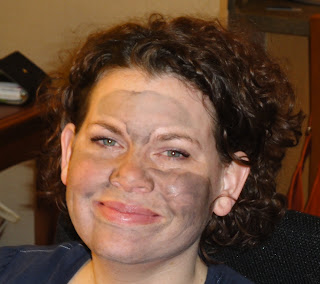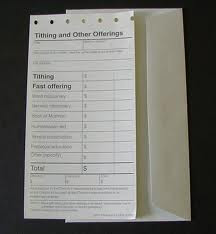 Mitt Romney
Mitt RomneyI am a life-long Democrat and a fan of President Obama, but I'd vote for Mitt Romney in a heartbeat. My respect for him supersedes party politics.
Politics is my sport—I listen to every debate, watch every pundit, read every stat. Over the years I've heard Mitt slammed for idiotic things, like perfect hair, ironed levis and stiff posture. "His sons are lined up behind him like they came from central casting," Chris Matthews says sarcastically. (Handsome, supportive sons are a reason we shouldn't vote for the guy?) "He's a flip-flopper," they say, and "He's too rich to identify with the rest of us." The Demos, the Repubs, they're all taking swings. I wish everybody knew what I know about Mitt Romney. This week I'm going to highlight some reasons I'm impressed.
He started well.
Lots of people are embarrassed by their youthful indiscretions. Fraternity parties, DUIs,
free love, "I didn't inhale." It was the 60s—everybody was doing it. Well, not everybody. In 1966, at age nineteen, Mitt Romney chose to set aside his education and social life to be a missionary for the Church of Jesus Christ of Latter-day Saints (
the Mormons) for three years, at his own expense.
 Mitt Romney and his father George
Mitt Romney and his father GeorgeAn LDS mission is not a
gap year experience, or a semester abroad. Missionaries are not tourists. They live in humble apartments, can't own cars, date or go out with friends. They get up early, exercise, study for a couple of hours and are out the door by nine a.m. to discover what good they can do.
Although I didn't go on a mission myself, I know many hundreds of people who have, including my brother, my husband, four of my kids, all four of my sons-in-law, aunts, uncles, cousins, nephews, dozens of friends, neighbors and church associates. I admire them all—it's an accomplishment.
Not just any member of our church can serve a mission. As a young man Mitt Romney had to qualify by living a certain way: no premarital sex, no drugs, alcohol or tobacco. He would have paid 10% of his income in tithing (from his allowance and part-time jobs) from early childhood.
Members of the LDS church fast for 24 hours on the first Sunday of every month, and donate the money saved from those meals as a
fast offering, which the Bishop of the ward (congregation) then distributes to needy families. Mitt would have paid this extra money, along with his tithing, throughout his teenage years, even though his parents would be paying it, too. We're taught from age three that
charity is "the pure love of God," a quality we want to develop, and even little kids take satisfaction in contributing their nickels and dimes.
To be eligible for a mission, a person must attend church regularly. In addition to Priesthood Meeting, Sunday School and Sacrament Meeting on Sunday, Mitt attended weekly scout meetings and youth service activities. His father was the governor of Michigan, and Mitt attended private school, but he was treated like every kid in his ward. Church assignments included shoveling walks, raking leaves, cleaning the church, painting park benches, collecting clothing for charity, delivering food to the poor, helping people move, mowing lawns and lots more. I know this because it's the way every active Mormon grows up, and I was one. Many LDS kids think it's a privilege to serve as a missionary, and live to be worthy of the opportunity.
 Elder Romney and his companion
Elder Romney and his companionMitt went to France. In those days foreign speaking missions were three years and they learned the language on the job. The mission president (a mature man, responsible for about 100 missionaries) assigned him a companion—another young man who had been in France a few months longer—and the two of them knocked on doors and tried to convince French people to give up wine. They didn't have much success, and it was discouraging work.
LDS missionaries are sent primarily to teach people about Jesus Christ, and they do all sorts of things to exemplify Christ-like service. Because of their early training, they are comfortable helping folks with whatever needs to be done, whether it's cleaning a basement after a flood, or rebuilding a house after a tsunami. Missionaries develop tolerance and compassion for many different kinds of people of every religion, and Mitt served exceptionally. He learned to speak French fluently and developed a lifelong love of France and its culture, which enhanced his appreciation for other countries, and especially his own. He often defended the United States' involvement in Viet Nam and stood up for America.
A devastating accident changed his life while he was in France. Mitt was a passenger in a car with the mission president and his wife when their car was hit; the wife was killed. The mission president took a leave of absence to take her body home to the USA, have the funeral and grieve with his family, leaving 21-year-old Mitt and his companion in charge of the mission for an extended period.
During that time, Mitt was responsible for missionaries arriving, going home, and transferring within the mission; training new missionaries; motivating old ones; handling the daily problems of a hundred young men and women living in a foreign country. Humbled by his near-death experience, Mitt prayed to be equal to the challenge. He discovered innate leadership and organization skills, and developed great confidence in his abilities.
 Mr. and Mrs. Mitt Romney
Mr. and Mrs. Mitt Romney While Mitt was on his mission, Ann, his high-school girlfriend, joined the LDS church. She was attending BYU when he returned home to Michigan, so he followed her to Utah. They decided to get married ten days later, but waited three months to appease their parents. At age 22, Mitt Romney had the experience and courage to take on adult responsibilities. They got married March 21, 1969 and moved into a basement apartment.
 Mitt Romney, young family Man
Mitt Romney, young family ManWhen Mitt graduated from BYU in 1971, they were already expecting their second son. In 1975 Mitt graduated cum laude from Harvard (in the top third of his class) with a joint law degree and MBA. By then they had three kids and Ann received her undergraduate degree that year, as well. I don't care how much money you have—you don't get four degrees and three kids in six years without a ton of hard work.
 (They had two more sons by 1981.)
(They had two more sons by 1981.)So—nothing humiliating, nothing disgraceful, nothing to cover up 43 years later. This is the story of how Mitt Romney spent the first ten years of his adulthood, from age 18 to 28. He definitely started well. And I think it's totally impressive.
(More of my impressions to come ... )
 Anna, Heidi, Marta, Amy, four of the seven sistas
Anna, Heidi, Marta, Amy, four of the seven sistas
















































